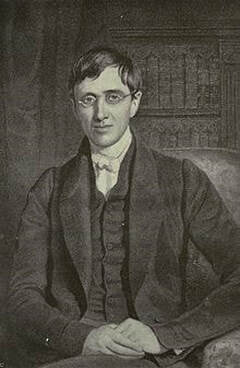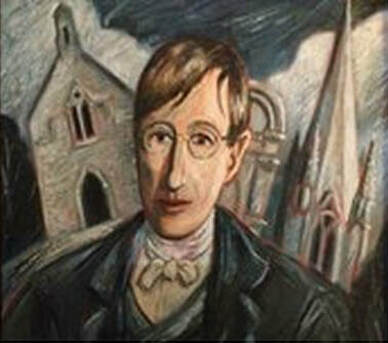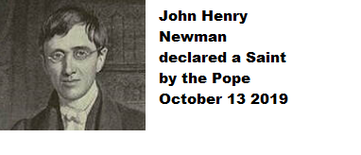John Henry Newman (1801 – 1890)
|
Newman studied at Trinity College Oxford and was elected to a fellowship at Oriel College in 1822. In 1825 he was ordained as an Anglican priest and served his curacy at St Clement’s Church in Oxford, whilst continuing as a tutor at Oriel.
A poet and theologian he was also a very controversial figure in 19th century religious history and hugely influential in the Oxford Movement. Froude described him as “One of the acutest, cleverest and deepest men” he had ever met. In 1828, Newman became the vicar of the Oxford City Parish of St Mary (The University Church). The parish included the small hamlet of Littlemore which, at that time, was described as a tragic slum. Newman’s heart was moved by the desperate plight of the people living there and, with the support of his mother and sister, he delivered pastoral and spiritual support and education to the residents. He found funding to build the church in 1835 and the school in 1838 and he personally supervised the projects. |
|
A series of events within the Church of England had caused him to question his spiritual path within the Anglican faith and in 1841 Newman moved out of Oxford to live in Littlemore. He leased a former coach staging post in the village and transformed the buildings into a house (later called ‘The College) adapted to his needs.
In September 1842, Newman preached his last Anglican sermon at Littlemore and resigned the living of St Mary’s. He did not leave Littlemore for two more years, until his own formal reception into the Roman Catholic Church in 1845. His choice to convert to Catholicism meant he was ostracised by his family and friends, but he pursued his path to study for the priesthood and he was ordained a priest in Rome in 1846. |
He returned to England in 1847 and founded the first Oratorian Congregation in Birmingham, with a second in London and established the Oratory School in Birmingham. In 1851 the Bishops of Ireland decided that there should be a separate University for Catholic students. John Henry Newman became its founder and first Rector, establishing what is known today as University College Dublin.
In 1879, at the age of 78, Pope Leo XIII made him a Cardinal of the Holy Roman Church, “as a tribute to his outstanding erudition and piety”.
In 1879, at the age of 78, Pope Leo XIII made him a Cardinal of the Holy Roman Church, “as a tribute to his outstanding erudition and piety”.
www.bbc.co.uk - Newman's Canonisation (13th October 2019)
© 2019 St Mary & St Nicholas, Littlemore. All rights reserved. The Vicarage, St Nicholas Road, Littlemore, Oxford OX4 4PP



